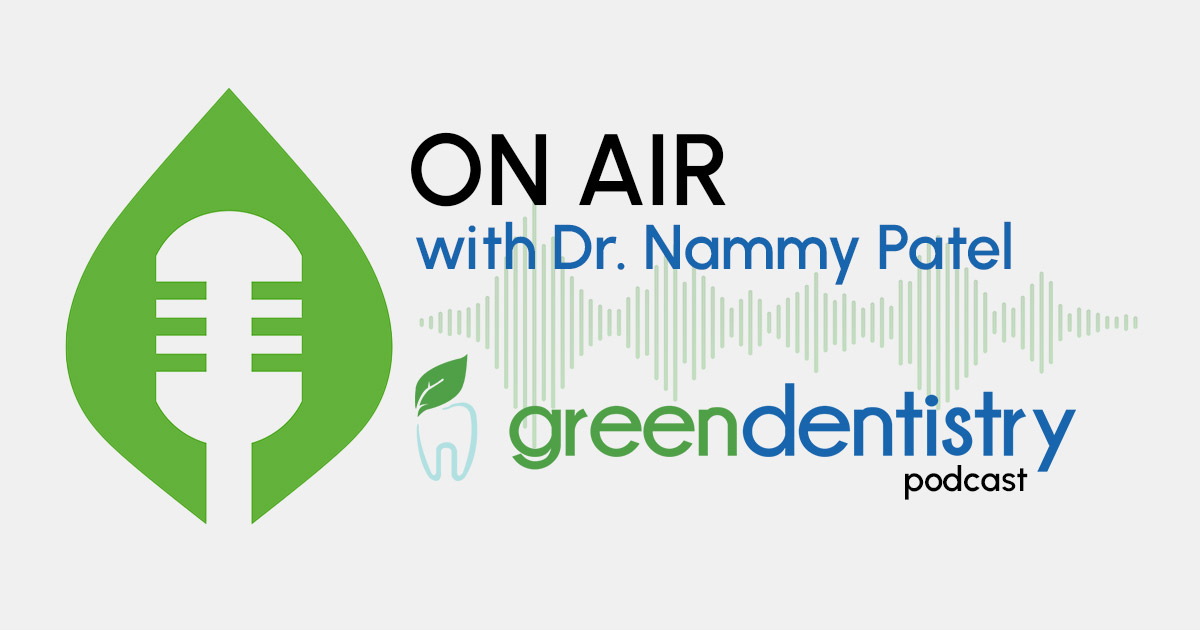Summary
In this podcast, Dr. Nammy Patel explains the causes of obstructive sleep apnea (OSA). Then, she talks about why oral appliances are more effective than some of the popular sleep apnea treatments.
John Maher: Hi, I’m John Maher. I’m here today with Dr. Nammy Patel, founder of Green Dentistry in San Francisco, California, helping patients recognize the vital connection between dental health and whole body health. And the author of the best-selling books “Age with Style: Your Guide to a Youthful Smile & Healthy Living” and “Total Wellness: Understanding the Link Between Your Teeth and Your Health”. Today, our topic is OSA and oral appliances. Welcome, Dr. Nammy.
Dr. Nammy Patel: Hi, John. Thank you for having me.
What Is Obstructive Sleep Apnea (OSA)?
John: Sure. Dr. Nammy, what is OSA or obstructive sleep apnea?
Dr. Nammy: Obstructive sleep apnea is when your body stops breathing, so it’s an obstruction. So obstructive sleep apnea means… Apnea means stop breathing, sleep is when you’re doing it during sleep, and obstructive means something’s in the way.
So the reason for that, many, many, many times, there’s actually two types of sleep apnea. There’s one that’s a neural, and that means that there is a chemical in the brain that doesn’t allow you to breathe properly while you’re sleeping at night.
The second is an obstruction, so the majority of the time it is because of the lower tongue. So what happens is when you’re sleeping, the tongue falls back and it stops and it blocks your airway. So hence an obstruction in the airway. Since the tongue is a muscle and when we sleep and we’re in that deep state of sleep, we kind of like our bodies are paralyzed almost, and our muscles aren’t moving. So as it falls back, it blocks the airway and that’s what we call obstructive sleep apnea.
How Do Oral Appliances Help With OSA?
John: And then what are oral appliances and how do they help with OSA?
Dr. Nammy: Obstructive sleep apnea can be treated in many ways. Most importantly in dental offices, which I love, is actually doing oral appliances. There are many oral appliances that are used in obstructive sleep apnea. One is really easy where it just pulls the jaw forward and so that way the tongue can’t fall back. That’s one of the easiest ways to do it.
I don’t really love that, mainly because patients come back with TMJ problems and they’re really uncomfortable to wear. So in my practice, I’m really proud to be offering Homeoblock and Vivos appliances, which are really great because they activate stem cells to make more space for the tongue so you can have suction. So it can actually stop the obstruction. It never… That tongue is actually held in its proper position so it doesn’t fall back to actually obstruct the airway.
Do Oral Appliances Help With Bruxism or Teeth Grinding?
John: And do oral appliances also help with teeth grinding or what’s called bruxism?
Dr. Nammy: Absolutely. So the main reason for the grinding is if the tongue’s in the way, the body’s trying to move the tongue out of the way. So when we have these appliances like Vivos or with Homeoblock, what it does is it creates space for the tongue to be suctioned at the roof of the palette, so it stays in place. So there is no reason for the body to grind.
Side Effects of Oral Appliances
John: And are there any side effects of oral appliances that people should be aware of?
Dr. Nammy: There are no side effects of good oral appliances. There are some appliances called the Herbst appliances, which tend to pull the jaw forward, and those do cause TMJ problems. I’m not a big fan of that. I like to create nose breathing, and so my favorite appliances tend to be the Homeoblock or the Vivos. I also do something called the OASYS, and it just depends on each situation and looking at a patient’s CT scan and sleep study to see how best we can serve them.
Who Should Consider an Oral Appliance?
John: Yeah, so who is an oral appliance right for?
Dr. Nammy: An oral appliance is not right for somebody who does not have back teeth. If you do not have back teeth, the oral appliance will not work. So that’s one of the requirements is that you must have back teeth.
Can You Use Oral Appliances if You Have Dental Implants?
John: Can you have dental implants and then use the oral appliance?
Dr. Nammy: Yeah. Yep. You can have dental implants, as long as it has something to anchor to on the backs of the teeth, we definitely can help. Absolutely.
John: All right, well that’s really good information, Dr. Nammy. Thanks again for speaking with me today.
Dr. Nammy: My pleasure, John.
Contact Dr. Nammy at Green Dentistry to Learn More
John: And for more information about Green Dentistry, visit the website at sfgreendentist.com or call 415-433-0119.


